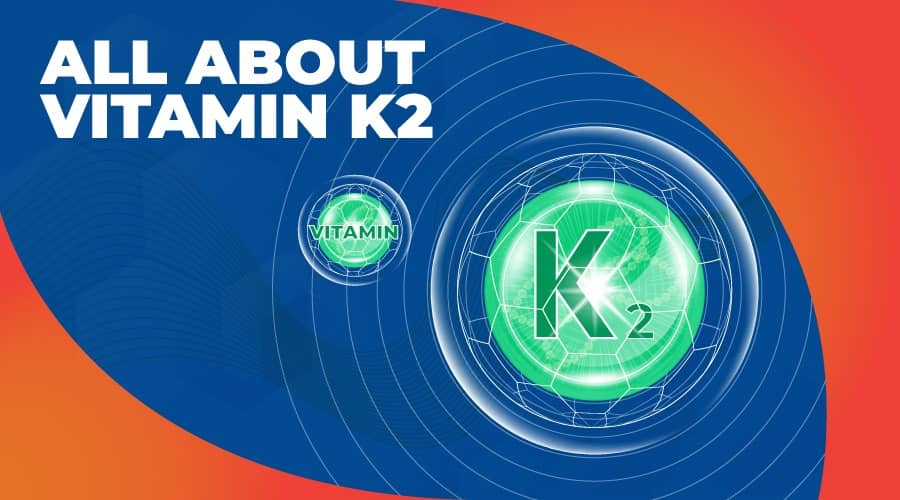For most people, the term ‘Vitamin K’ conjures images of leafy greens that assist in blood clotting. Yet, few are aware of Vitamin K2, a lesser-known but equally significant form of this essential nutrient. Dive into this comprehensive guide to understand Vitamin K2, its numerous health benefits, and the foods brimming with its goodness.
What is Vitamin K2?
Vitamin K is a fat-soluble vitamin that exists in two primary forms: K1 (phylloquinone) and K2 (menaquinone). While Vitamin K1 is abundant in leafy greens and plays a vital role in blood clotting, Vitamin K2’s role is distinct and multifaceted. Found mainly in fermented foods and certain animal products, K2 works synergistically with other vitamins and minerals to support holistic health.
Remarkable Benefits of Vitamin K2
- Supports Bone Health: Vitamin K2 assists in regulating calcium in the body. By ensuring calcium is directed towards bones and teeth, K2 helps in maintaining bone density and preventing osteoporosis1.
- Heart Health: K2 prevents calcium deposits in the arteries, a factor leading to arteriosclerosis or artery hardening. By reducing arterial calcification, K2 promotes cardiovascular health2.
- Dental Health: Similar to its role in bone health, K2 ensures calcium is used effectively in tooth remineralization, leading to stronger teeth3.
- Supports Immune Function: Emerging research suggests Vitamin K2 might have a role in regulating immune responses, though more research is needed in this area4.
- Potential Anti-Cancer Effects: Some studies have hinted at K2’s potential in suppressing cancer cells, especially in cases like liver cancer.
Dietary Sources of Vitamin K2
Ensuring adequate Vitamin K2 intake is crucial, given its array of health benefits. Here are some foods rich in this nutrient:
- Natto: A traditional Japanese dish made from fermented soybeans, natto stands out as one of the highest sources of K2.
- Dairy Products: Particularly in hard cheeses and butter from grass-fed cows, Vitamin K2 is found in the form MK-4.
- Egg Yolks: Eggs from free-range chickens that feed on greens are a good source.
- Organ Meats: The liver, especially from grass-fed animals, contains moderate amounts of K2.
- Fermented Vegetables: Some, like sauerkraut, can have K2 due to specific bacterial strains during fermentation.
- Chicken: Though in smaller quantities, regular consumption can contribute to daily K2 intake.
Conclusion
While it may not enjoy the limelight as some other vitamins, Vitamin K2’s role in supporting overall health is undeniable. From bone density to heart health, this powerhouse nutrient holds a critical spot in holistic well-being. By incorporating K2-rich foods into the diet and understanding its interplay with other nutrients, we can pave the way for a healthier future.
References:
- Schurgers, L.J., & Vermeer, C. (2000). Determination of phylloquinone and menaquinones in food. Haemostasis, 30(6), 298-307.
- Geleijnse, J.M., Vermeer, C., Grobbee, D.E., Schurgers, L.J., Knapen, M.H., van der Meer, I.M., … & Witteman, J.C. (2004). Dietary intake of menaquinone is associated with a reduced risk of coronary heart disease: the Rotterdam Study. The Journal of nutrition, 134(11), 3100-3105.
- [Mellanby, M. (1932). Diet and the teeth: an experimental study. Part III. The effect of diet on dental structure in animals. Medical Research Council Special Report Series, No. 159.]
- Carlson, A. (1985). Effect of vitamin K2 on the development of hepatocellular carcinoma in type C cirrhotic rats. Journal of the National Cancer Institute, 75(4), 791-795.
- Habu, D., Shiomi, S., Tamori, A., Takeda, T., Tanaka, T., Kubo, S., & Nishiguchi, S. (2004). Role of vitamin K2 in the development of hepatocellular carcinoma in women with viral cirrhosis of the liver. Jama, 292(3), 358-361.
